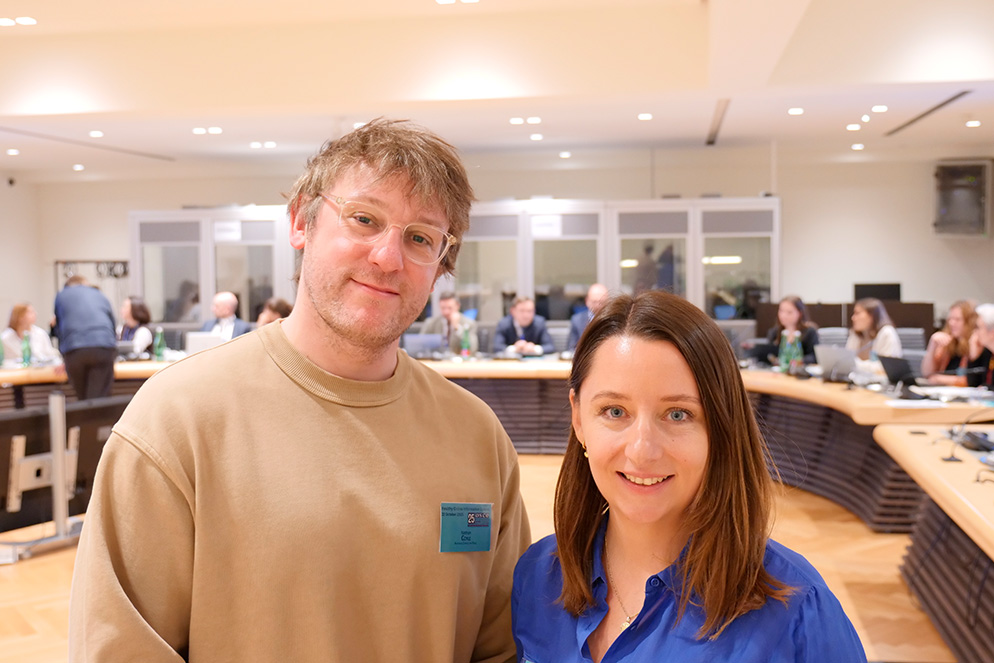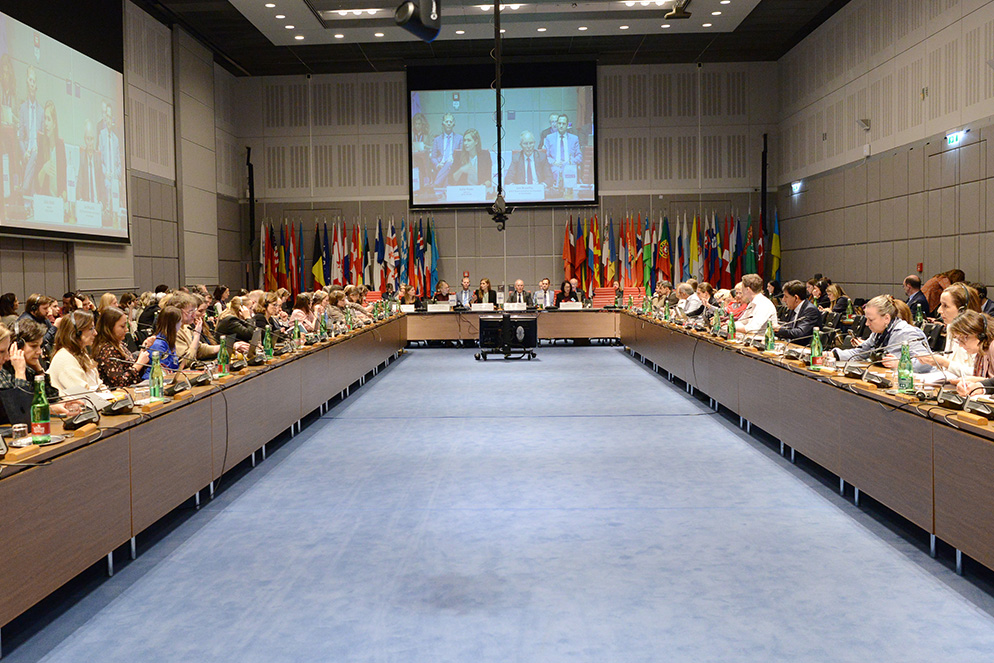


Left: Nathan Coyle, Co-Founder, PeaceTech Alliance. Right: Astrid Holzinger, Austrian Centre for Peace.
BY NATHAN COYLE / ON 7 November, 2025
The PeaceTech Alliance was invited by the OSCE Representative on Freedom of the Media (RFoM) to organise a dedicated session at the Healthy Online Information Spaces conference, held at the Hofburg in Vienna on the 22nd of October 2025. Together with its partners, the Austrian Institute of Technology (AIT) and the Austrian Centre for Peace (ACP), the Alliance led the session PeaceTech: What it Means for Media Freedom, which explored how technology can both advance and challenge media freedom, accountability, and peacebuilding within democratic societies.
The discussion focused on how PeaceTech can help create more open, reliable, and inclusive information spaces when designed around people and local realities. Participants explored how trust, access, and transparency are central to ensuring that technology strengthens democracy rather than undermines it.
Amy Mitchell, Elodie Vialle, Maksym Dvorovyi, and Sally Broughton Micova contributed their experience from across media, policy, and technology. Following their opening insights, participants were divided into smaller groups for an interactive exercise, where each expert facilitated discussion and gathered feedback on practical challenges and opportunities for PeaceTech in strengthening media freedom. The facilitated feedback from these sessions was later shared with the OSCE to help inform ongoing work on information integrity and digital resilience.
The PeaceTech Alliance also supplied feedback into the high-level launch of the OSCE RFoM’s Policy Manual on Safeguarding Media Freedom in the Age of Big Tech Platforms and AI. The Manual offers timely guidance on how to protect media freedom in a rapidly changing digital landscape and will continue to inform the Alliance’s wider work on PeaceTech and data governance.

The following week, Nathan Coyle represented the PeaceTech Alliance at the OSCE Media and Security Dialogues: Disinformation and its Impact on P/CVERLT and Counter-Terrorism roundtable, organised by the OSCE Transnational Threats Department and the OSCE RFoM. Discussions focused on the growing risks posed by AI-driven disinformation and the loss of trust in online spaces, stressing that media literacy, responsible journalism, and public-interest information remain essential to peace and security.
The PeaceTech Alliance thanks the OSCE Representative on Freedom of the Media, in particular Julia Haas and Claire Haering, for their leadership in driving forward these important conversations. These engagements reflect the Alliance’s commitment to promoting human-focused PeaceTech and responsible data practices, and to helping build digital spaces rooted in trust, transparency, and inclusion.